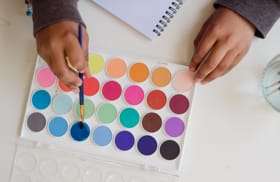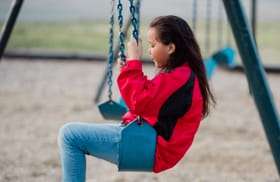SMART OT
Frequently Asked QuestionsWorking with you to answer your questions and provide you and school with the tools to work towards real solutions.
My child is not coping in school and struggles to learn. How can you help?
The assessment will include lots of information about what your child can do and what they struggle with. Where possible, tests will be used to compare them to children without difficulties. I observe children in the classroom to see how they cope in the learning environment. Some of the skills I look at include listening to the teacher, remembering information, following instructions, and their concentration. I also assess motor skills, fine motor skills, handwriting, play, interaction and social skills, and if they seek sensory input or struggle to cope with it, e.g. fidgety, avoid crowds, cover their ears, are hyperactive, are withdrawn, are vigilant or in high alert, avoid others, chew their clothes or objects.
No one understands my child. They think that it is behaviour. How can you help?
An assessment will look at your child in a different way and tell the story. I consider information from parents, school, the child (if they are able to), and what I observe during the assessment. Some children with sensory issues are overloaded by the time you see behaviour. With any child, behaviours are often the last thing that you see as they are already distressed and unable to cope. Lots of children struggle to express and understand their emotions. The assessment will help the child and others understand them in a different way.
Where does the assessment take place?
I will assess your child where it is most convenient. It often depends on the age of the child and the education setting. I do not use a clinic as I believe that a child should feel comfortable. Most of my assessments take place at school as I can observe lots of issues that affect them. We can discuss what works best for you.
What does the assessment involve?
The assessment involves feedback from parents, feedback from school, observations in school, and standardised assessments (if appropriate). Where possible, I will ask the child about their difficulties. After the assessment I will call you to discuss the outcome of the assessment. I write a report and give recommendations. Most children will have a programme of activities too.
What advice do you give?
The recommendations I give depend on the age of the child and the school setting. They can include the layout of the classroom, where they sit, changing how they learn, exam concessions, how to manage sensory issues, or how to use sensory input to help them stay focused and learn. Some children will have a programme to follow. The aim is to improve their skills or help them focus or learn. Examples are motor skills, handwriting, self-care skills, or sensory regulation, i.e. help them engage in learning, adapt to situations, or manage their emotions.
How will you help my child if they struggle to communicate?
I am experienced in working with children who have communication difficulties. Some use different ways of communicating, e.g. sign language, PECS symbols. Others struggle to manage their emotions. I change my approach to help your child. Examples of this are the way prompts are used, allowing pauses, using gestures or keywords. I always give a child time, so they feel at ease. I have experience of using visual tools for regulation and regularly recommend them to schools and parents.
I think my child has an underlying condition or diagnosis. How can the assessment help?
My report will identify and describe difficulties that your child is experiencing. The timing of assessments varies. Some children already have a diagnosis and parents or schools are seeking help to manage difficulties that they have. Sometimes the assessment will be used by specialists or services before a diagnosis is made. If your child needs a referral to a specialist or professional, I will discuss this with you.
What tools or skills are you trained to use?
I am an advanced practitioner in sensory integration. This means that I have completed approved training in the assessment of sensory processing difficulties and sensory integration therapy. I have also completed training in the Therapressure Programme (formerly known as the Willbarger Protocol or the brushing programme), SCERTS Model (Social Communication, Emotional Regulation and Transactional Support), trauma, autism, and Makaton (sign language).
School tell me that they do not see any problems. When my child comes home, they have a meltdown, and cannot cope. Why does no one else see this?
Many children mask their behaviour. They want to fit in, and they try really hard to do so. This can result in anxiety and a build-up of emotions during the day. Sometimes you will see extreme reactions that are out of proportion to what is happening around them at the time. The assessment will identify this and look at the differences between school and home.
My child regularly goes into crisis. How can you help?
Some children go into crisis when they cannot cope in a situation. For others it is a build-up of what has happened before or there can by underlying issues, e.g. tired, poorly, nutrition. The assessment will consider lots of factors besides the sensory issues. Emotions can make sensory issues worse. Children are not the same from one day to another, so what works on one day may not work on the nest day. The assessment will give advice on how to manage crisis and what can help. The measures vary. Often it is about recognising issues that lead to crisis, signs of crisis, and thinking ahead about what could be done differently.
Read about our methods in How We Work




